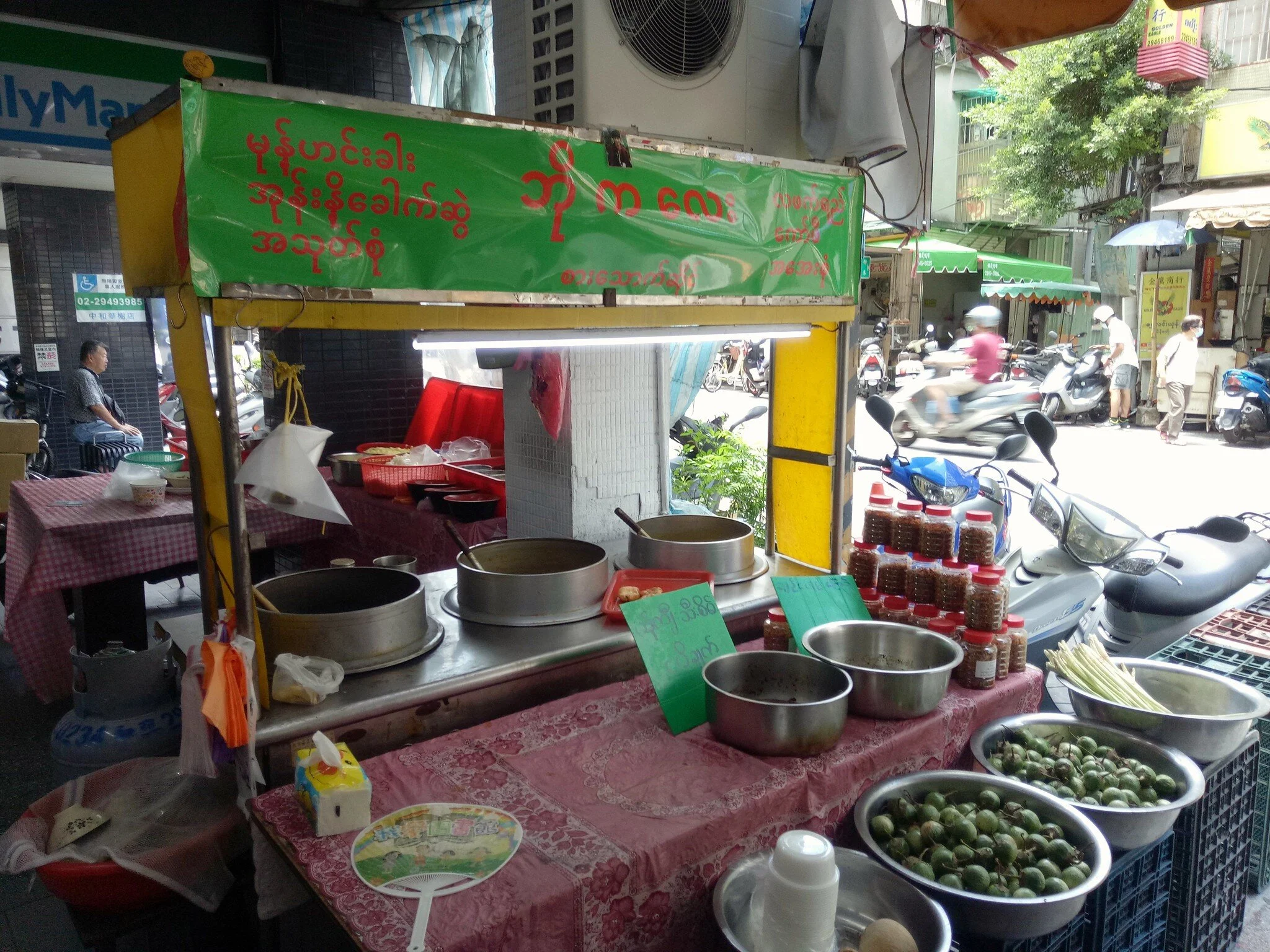Singing “Kabar Ma Kyay Bu” in 2021: The Myanmar Civil Disobedience Movement in Taiwan
“Kabar Ma Kyay Bu” (ကမ္ဘာမကြေဘူး), also translated as “We Won't Be Satisfied Until the End of the World”, is the Burmese-language anthem of Myanmar’s 1988 pro-democracy movement. On February 6, protestors sang this anthem in Taiwan’s “Little Burma”, showing overseas support to their detained leader Aung San Suu Kyi and other arrested political figures. Many see the latest military coup as a serious hindrance to Myanmar’s road to democracy since 2011.
Credit: MingalarPar Culture Studio (鳴個喇叭文化工作室)
Translated by Sabrina Chung
This piece first appeared on the Facebook page of MingalarPar Culture Studio (鳴個喇叭文化工作室)and was translated and reprinted under the permission of the publisher.




Today (February 6, 2021), more than 400 people from the Burmese immigrant community in Taiwan participated in their self-organized “Myanmar Civil Disobedience Movement” (緬甸公民不服從運動) in Huaxin Street (華新街).
Also known as “Little Burma”, the Huaxin Street area in Zhonghe district, New Taipei City is home to a significant part of Taiwan’s 40,000 Burmese population. Among this community, most of the immigrants were originally from Yunnan, Fujian and Guangdong in China. They had moved to Myanmar due to cross-country trade and business, or to escape the Chinese Civil War since 1927. Afterwards, they fled the country again due to the 1967 anti-Chinese riots and political repression in the subsequent years.
The civil disobedience movement today can be said to be unprecedented. In the past, Huaxin Street was the major venue where Burmese traditional festivals such as the Thingyan Water Festival (潑水節) and Thadingyut Festival (點燈節) took place. Never had it witnessed a large-scale rally that attends to Myanmar’s current political and social conditions. Dressed in red and holding the Burmese national flag and a portrait of Aung San Suu Kyi, protestors expressed their solidarity with the people of their home country. Among them were also local Taiwanese who are concerned with the recent coup in Myanmar.
Protestors departed from the alleys and marched the main roads of Huaxin Street, chanting “Justice for Myanmar, Against Military Coup, Release Aung San Suu Kyi!” in Burmese along their way. The rally concluded at a tiny plaza next to Hwa Hsia University of Technology. By the end of the rally, protestors sang “Kabar Ma Kyay Bu”– a song commemorating Myanmar’s 1988 pro-democracy movement, also known as the 8888 Uprising. Under the rhythms of “Kabar Ma Kyay Bu”, protestors expressed overseas support towards Aung San Suu Kyi and other political leaders detained during the latest coup that overthrew the democratically elected government. Many see the coup as a serious hindrance to Myanmar’s road to democracy since 2011.
Speaking of why he launched the rally, the event organizer Mr. Thu, a Burmese immigrant, said that he wants to raise international awareness of what is unfolding in Myanmar now. It is his hope that the international community can direct attention to his home country.
The latest military coup reminds him of the pro-democracy 8888 Uprising in 1988. Mr. Thu recalled that more than 3,000 people were killed and injured during the protests because of the military’s brutal suppression. The current political condition in Myanmar worries many from the Burmese immigrant community who share the fear that the nightmare of 1988 will erupt again. At this critical moment, Burmese nationals are burdened with worry and anxiety, whether they are at home or abroad.




Among the most perturbed are the residents of “Little Burma,” many of whom still have family ties in Myanmar. Living overseas, these Burmese immigrants faced a mounting sense of anxiety while studying Myanmar’s current situation from both domestic and online news sources every day. Through Facebook, they not only voiced concerns over the difficulty facing Myanmar but also discussed what they can do for their faraway home country. The large-scale rally is an embodiment of their contribution to and solidarity with Myanmar.
Ms. Hnin said, “My friend and I still have family in Myanmar. We are participating in the solidarity rally not simply because we are worried about our family members. We are also deeply concerned about Myanmar’s [future] development. Today we shouted our slogans and finally got the chance to release our growing anger towards the military’s handling of affairs.”
As a community promotion team concerned with Myanmar’s current situation, the MingalarPar Culture Studio really appreciates the support of every participant at the rally! Special thanks to Mr. Thu, the rally organizer, and many more helpers behind the scenes. Your help brings this rally to a fruitful conclusion.









